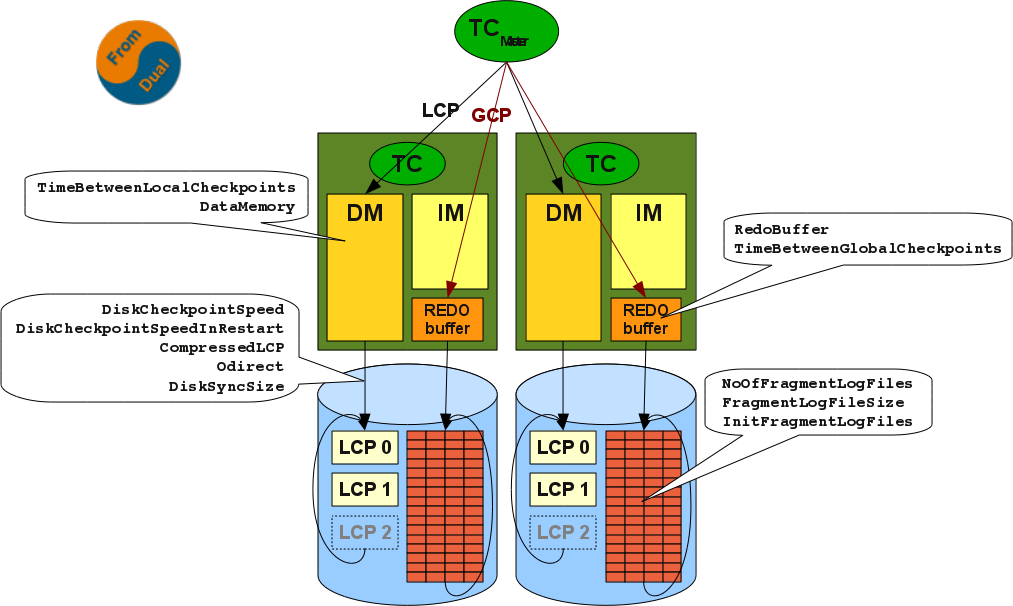You are here
MySQL Cluster Local Checkpoint (LCP) and Global Checkpoint (GCP)
Thu, 2010-07-29 16:29 — Shinguz
MySQL Cluster is mainly an in-memory database. Nevertheless it requires a good I/O system for writing various different information to disk.
The information MySQL Cluster writes to disk are the:
- Global Checkpoints (GCP) which are the transactions.
- Local Checkpoints (LCP) which is a dirty image of the data.
- Backup.
In the following schema (a 2-node Cluster) you can see what is related to each other:

Please find here the meaning of each parameter:
Taxonomy upgrade extras:
- Shinguz's blog
- Log in or register to post comments

Comments
1. Why shall 2 LCPs be kept?
Why shall 2 LCPs be kept?
Why shall 2 LCPs be kept?